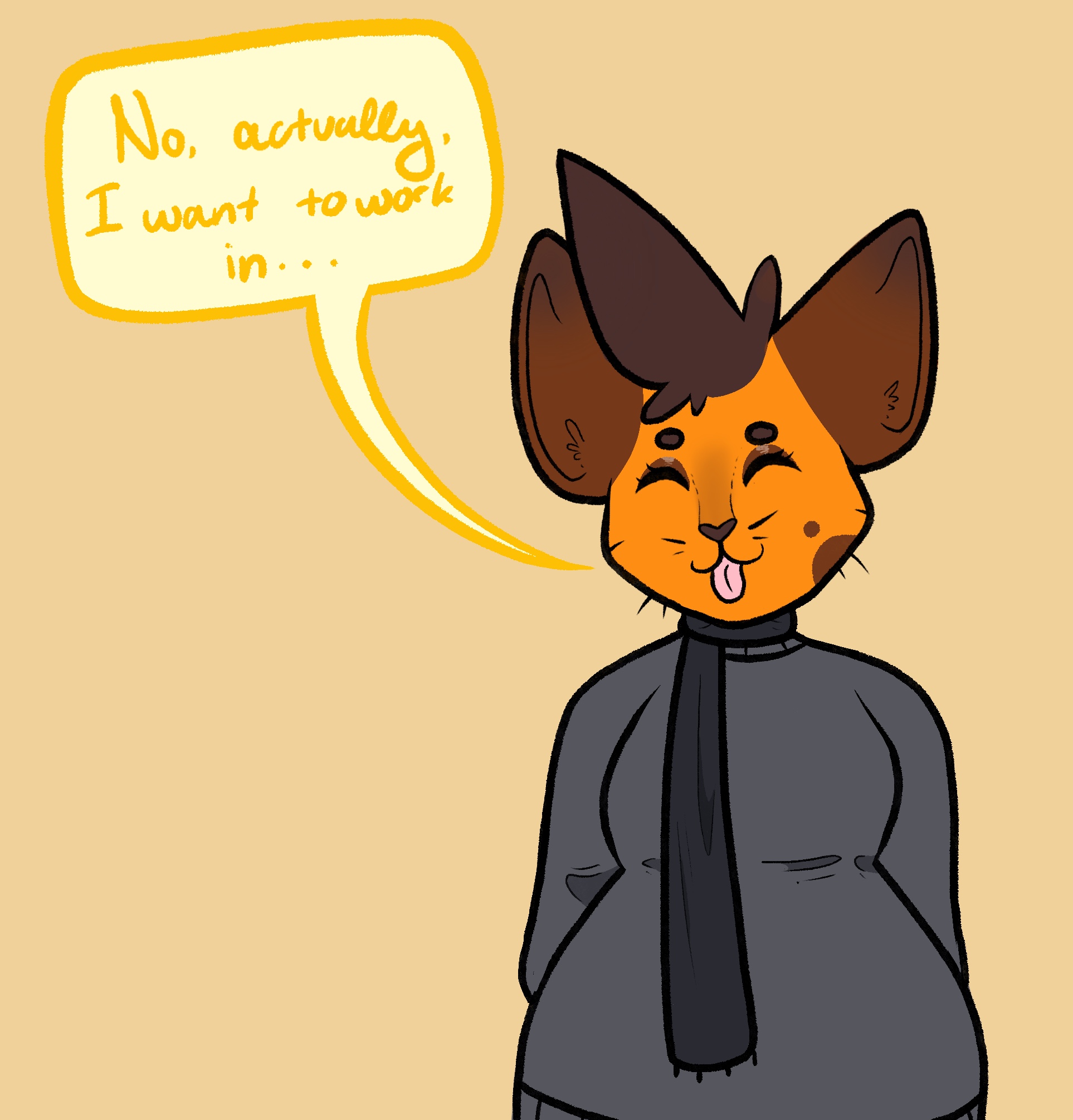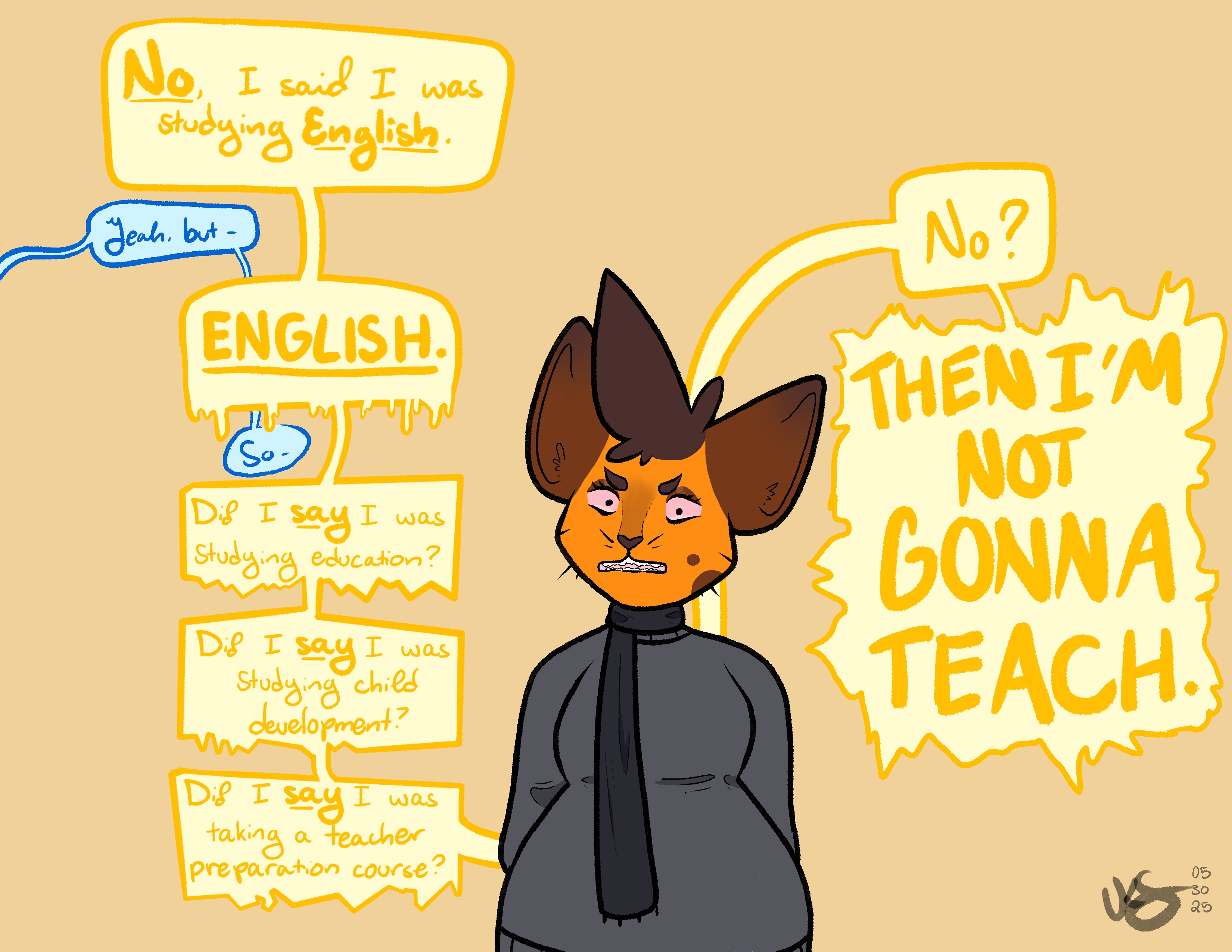"So you want to be a teacher?"
I get this one a lot.
My filial piety is such that I wouldn't dream of retorting—unless I happen to be in the shower the next morning, retconning conversations in my head, as one does, and I wish I'd said something a little less like this:

and a little more like this:

Of course I love what I’m studying. Of course I see the enormity of its value—why else would I be here? But I think that, on some level, implying an English degree makes a career in education inevitable speaks to just how little we as a society value the work teachers do. On its face, it equates teaching with a degree widely perceived as otherwise useless. Maybe otherwise is the key word here, and the question instead points to a lack of imagination as to how else an education in the humanities could possibly benefit someone—but is that really much better?
More to the point: The aforementioned question implies teaching is easy.
Before you get your Tudor and/or Regency and/or Victorian knickers in a twist, this is not me saying that majoring in English is easy. (Let it be known that I delight in the foibles of those who take humanities courses thinking they amount to an easy A, before inevitably finding themselves blindsided by the fact that the humanities expect them to actually think.) Rather, this is me saying it is preposterous to suggest all it takes to teach is to know. Sure, you’ve read The Catcher In the Rye cover-to-cover. Yes, yes, of course you can recite Sonnet 18 from memory, exactly as it ought to be enunciated—and you’re very good at it. And maybe you, like any sensible English major, hiss and spit like a cobra at the dreaded phrase “the curtains are just blue.” But do you know how children work? Are you capable of respecting their autonomy? Do you care enough to accommodate their physical, social, and emotional needs, even—especially—when these needs differ? Do you even like being around them? The answer to any one of these questions might be yes; but if it is, I suspect it’s not because of your English major. It takes a truly awe-inspiring level of societal ignorance for so many people to think a BA in English—without a teaching specification, at the very least—entitles you to waltz into a school’s hiring department and proudly announce you would like One Teaching Position, Please. Maybe some districts will just hire anyone—but that’s not the case everywhere, and it shouldn’t be the case anywhere.
Or maybe I’m the one with my petticoats in a bunch. After all, teaching can’t be that hard, can it?. All you have to do is accept an at-best-questionable wage in exchange for being a secondary parental figure to tens, dozens, maybe even hundreds of kids with delicate, half-baked prefrontal cortices. Half the time you’ll parent their parents. You already have to deal with one administration that doesn’t give a damn about you or your job; if you’re really unlucky, you’ll grapple with two, one macro, one micro.
But, like... you wrote a couple essays on Beat literature when you were 21, so you should be fine.
No pressure.
⋅•⋅⊰∙∘☽༓☾∘∙⊱⋅•⋅